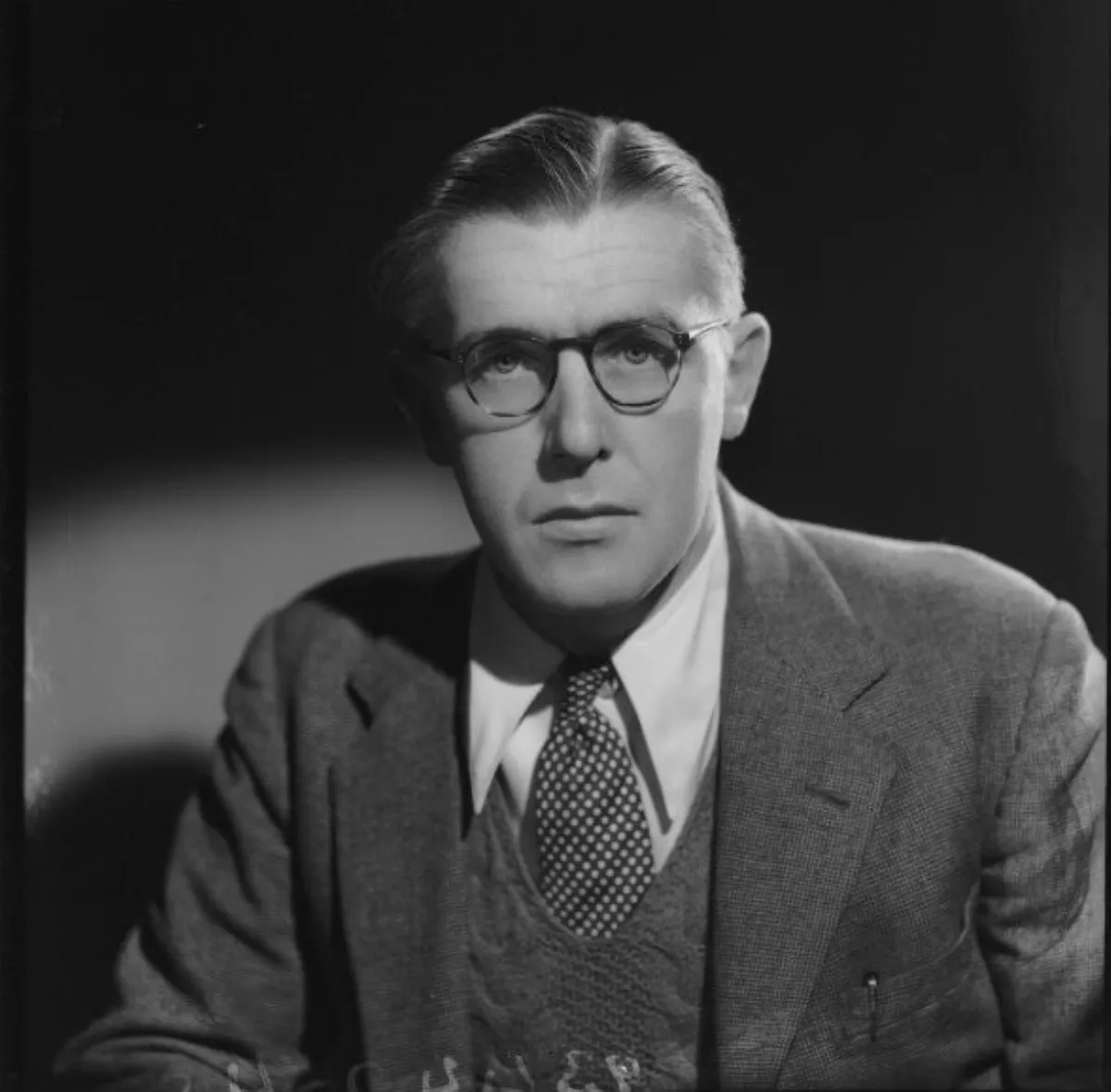 1.
1. Richard Howard Stafford Crossman was a British Labour Party politician.

Richard Crossman was a Bevanite on the left of the party, and a long-serving member of Labour's National Executive Committee from 1952.
Richard Crossman is remembered for his highly revealing three-volume Diaries of a Cabinet Minister, published posthumously.
Richard Crossman was born on Sunday, 15 December 1907 at Buckhurst Hill House, Essex, the son of Charles Stafford Richard Crossman, a barrister and later a High Court judge, and Helen Elizabeth.
Richard Crossman grew up in Buckhurst Hill, Essex, and was educated at Twyford School, and at Winchester College, where he became head boy.
Richard Crossman received a double first and became a fellow in 1931.
Richard Crossman taught philosophy at the university before becoming a Workers' Educational Association lecturer.
Richard Crossman was a councillor on Oxford City Council, and became head of its Labour group in 1935.
Richard Crossman, who had been noted for his good looks as a youth, had predominantly same-sex affairs at Oxford.
At the outbreak of the Second World War, Richard Crossman joined the Political Warfare Executive under Robert Bruce Lockhart, where he headed the German Section.
Richard Crossman produced anti-Nazi propaganda broadcasts for the BBC German Service and the Radio of the European Revolution, set up by the Special Operations Executive.
Richard Crossman eventually became Assistant Chief of the Psychological Warfare Division of SHAEF and was awarded an OBE for his wartime service.
Richard Crossman became a key participant in the annual Konigswinter Conference, organised by Lilo Milchsack to bring together British and German legislators, academics and opinion-formers from 1950 onwards.
Richard Crossman entered the House of Commons at the 1945 general election as the Member of Parliament for Coventry East, a seat he held until shortly before he died in 1974.
Thereafter Richard Crossman led the socialist opposition to the official British policy for Palestine.
Richard Crossman initially supported the Arab cause, but became a lifelong Zionist after meeting Chaim Weizmann.
At a 1959 lecture in Israel, Richard Crossman attacked what he perceived as hypocrisy over Israel regarding anti-indigenous racism.
Richard Crossman cemented his role as a leader of the left-wing of the Parliamentary Labour Party in 1947 by co-authoring the Keep Left pamphlet, and later became one of the more prominent Bevanites.
Richard Crossman is considered by historians to be a central figure to British Cold War propaganda due to his collaboration with the Information Research Department, a secret branch of the UK Foreign Office dedicated to disinformation, anti-communist, and pro-colonial propaganda during the Cold War.
Richard Crossman was a regular contributor to Encounter, an "anti-Stalinist" publication which received funding from MI6 and the CIA.
Richard Crossman's name was included within one of George Orwell's notebooks following the discovery of Orwell's list, being noted by Orwell as being "Too dishonest to be outright F T".
Richard Crossman was a member of the National Executive Committee of the Labour Party from 1952 to 1967 and served as its chair from 1960 to 1961.
In 1957, Richard Crossman was one of the plaintiffs, along with Aneurin Bevan and Morgan Phillips, in a claim for libel made against The Spectator, which had described the three men as drinking heavily during a socialist conference in Italy.
Many years later, Richard Crossman's posthumously published diaries confirmed that The Spectators charges had been true and that all three of them had perjured themselves.
Richard Crossman was Labour's spokesman on education before the 1964 general election, but upon forming the new Government Harold Wilson appointed him to the Cabinet as Minister of Housing and Local Government.
In 1966, Richard Crossman became Lord President of the Council and Leader of the House of Commons.
Richard Crossman is best remembered for his colourful and highly subjective three-volume Diaries of a Cabinet Minister, written while he was living in Vincent Square, published posthumously from 1975 to 1977 and covering his time in government from 1964 to 1970.
Richard Crossman's diaries were an acknowledged source for the television comedy series Yes Minister.
Richard Crossman died of liver cancer at 3.30pm on 5 April 1974 at his home in Banbury Oxfordshire.
Richard Crossman had known since September 1973 that he was terminally ill.
Richard Crossman was cremated five days later and was survived by his third wife, Anne Patricia, with whom he shared common descent from the Danvers family of Cropredy.
Anne Richard Crossman worked at Bletchley Park during the Second World War, and served as secretary to Maurice Edelman MP.
The Richard Crossman Building, built in 1971, at Coventry University is named in his honour.
The former Labour MP Bryan Magee wrote in his autobiography Making the Most of It that Richard Crossman was "the most brilliant debater I have heard".